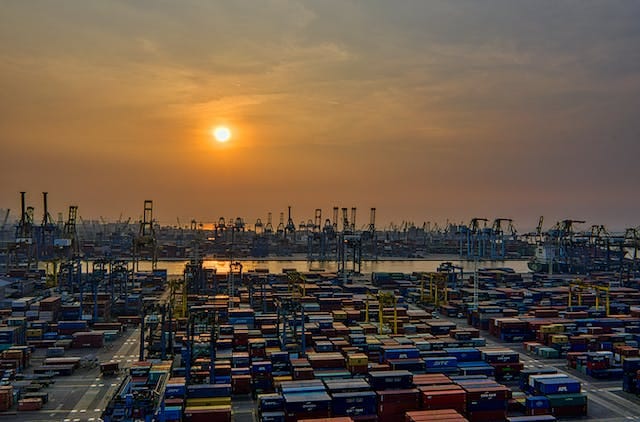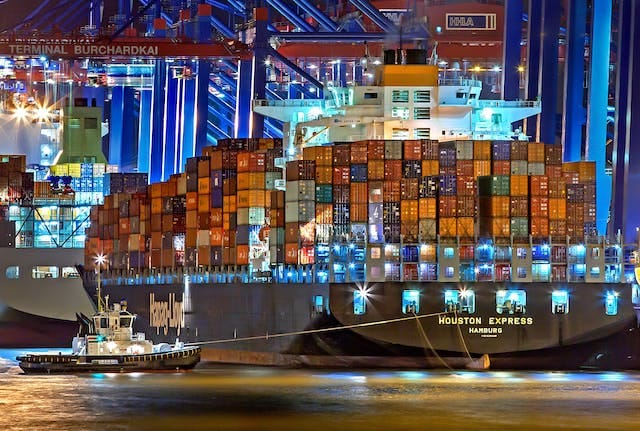Global Trade and Tariffs: Implications for Investors
Stay ahead of the curve with our guide on Global Trade and Tariffs. Uncover insights into their implications for investors, making informed decisions in a dynamic economic landscape

The interconnectedness of global economies has made international trade a cornerstone of modern financial markets. As investors navigate this complex web of commerce and regulations, the specter of tariffs looms large, shaping investment strategies and forecasting economic conditions. In this in-depth exploration, we will dissect the multifaceted relationship between global trade, tariffs, and the investment landscape, providing actionable insight for stakeholders in the financial world.
Introduction: The Financial Significance of Global Trade
Global trade powers the engines of economic growth and shapes the trajectory of financial markets. Investors must continually monitor the ebb and flow of international commerce, recognizing its profound influence on profits and portfolios. The implementation of tariffs, a tool wielded by governments to control commerce and protect domestic industries, has become an increasingly critical factor in investment decision-making.
In the modern age, the narrative of trade tensions between economic powerhouses such as the United States, China, and the European Union has dominated headlines, underscoring the complex interplay between economic policy, investor confidence, and market volatility. As we delve into this subject, we aim to provide investors with a comprehensive understanding of the implications that global trade dynamics and tariff wars hold for their endeavors.

The Ramifications of Trade Wars on Investor Sentiment
Trade wars are not mere skirmishes between countries; they're seismic events that shift the very ground beneath international investment communities. The mere threat of new tariffs or trade restrictions can erode investor confidence, spur market sell-offs, and raise geopolitical tensions.
The Global Supply Chain Chessboard
For investors, understanding the intricate movements of the global supply chain is akin to mastering a high-stakes chess game, with each trade policy move potentially affecting dozens of interconnected industries and markets. By examining supply chain analytics, investors can anticipate and adjust to tariff-related disruptions.
Overview of Global Trade
The Backbone of Economic Prosperity
Global trade serves as a catalyst for economic growth, enabling specialization, efficiency, and the utilization of comparative advantages. It's through this economic exchange that nations are able to maximize output, promote innovation, and raise standards of living.
The Growth of Trade and Investment Agreements
Trade agreements and investment pacts have flourished, promoting the free flow of goods and capital across borders. The signatories to these accords not only open new markets but also cultivate an environment of economic stability essential for prosperous investing.
Understanding Tariffs
Decoding the Language of Trade Barriers
When governments levy tariffs, they do more than impose taxes on imported goods—they alter the competitive landscape for domestic and international producers alike. Tariffs are one of the oldest and most common forms of trade barriers; investors must be fluent in their language to forecast the economic weather.
Ad Valorem vs. Specific Tariffs
Investors must understand the nuances between ad valorem—the taxation of goods at a percentage of their value—and specific tariffs, which apply a set fee to a given quantity. These distinctions can significantly affect the cost of doing business in foreign markets and, subsequently, investment returns.
The Impact of Tariffs on the Global Economy
The Dual Nature of Tariffs
On one hand, tariffs can protect domestic industries and mitigate trade deficits. On the other, they raise consumer prices, reduce export competitiveness, and impede the fluidity of global commerce. As we explore these dual effects, investors will be equipped to discern the broader economic implications of each trade policy measure.
Economic Growth and Stability at Stake
The strategic use of tariffs can stimulate or stifle economic growth, depending on the circumstances. By analyzing historical trends and current market conditions, investors can gain insight into the potential impact of tariffs on broader economic stability and investment returns.
Entering the Thorns of Protectionism
In times of protectionism, where tariffs are used as swords to carve out economic fortresses, investors must navigate carefully. While some industries may benefit, others can find themselves mired in the trenches of trade restrictions, creating an uneven playing field for investment opportunities.

Implications for Investors
Navigating the Volatility
Tariffs inject a sense of unpredictability into the investment landscape. Successful investors will understand how to navigate this volatility effectively, identifying sectors that may present opportunities for growth in the face of tariff-related challenges.
Diversification as the Vanguard
A well-diversified investment portfolio can act as a bulwark against the uncertainties introduced by tariffs. By spreading investments across multiple sectors and geographies, investors can reduce their exposure to risk and take advantage of global market shifts.
Hedging Strategies in a Tariff-Driven Market
In today's tariff-driven markets, hedging strategies play a pivotal role in risk management for investors. From futures and options to currency hedges, these tools can help shield investments from the direct and indirect impact of trade policies.
Trade Policy Considerations
Deconstructing the Rationale Behind Tariff Impositions
Understanding the underlying policy objectives of tariffs is crucial for investors seeking to decode the motivations behind trade decisions. By examining the socio-economic reasoning, investors can assess the depth and duration of potential market reverberations.
The Role of International Organizations
International organizations like the World Trade Organization wield influence in moderating trade disputes and fostering an environment of multilateral cooperation. Investors attuned to the workings of these entities can gain foresight into the direction of global trade policy.
Case Studies
Industries in the Crosshairs
From steel and aluminum to agriculture and technology, tariffs have cast long shadows over numerous industries. By studying the experiences of these sectors, investors can glean insights into the potential outcomes and investment opportunities borne from trade conflicts.
Resilient Companies and Adaptive Investment Strategies
Some companies excel in the face of tariff challenges, employing adaptive strategies that enhance resilience and capitalize on changing market dynamics. Investing in such companies, and learning from their approaches, can be a cornerstone of a successful investment strategy in a tariff-impacted environment.
Conclusion
As the tapestry of global trade continues to evolve, investors face both challenges and opportunities. Those who remain informed about the economic implications of tariffs and trade dynamics can position themselves to not only weather market turbulence but to also thrive in the ever-changing investment ecosystem.
The future of global trade and its tariffs is far from certain. However, by staying informed and adaptable, investors can navigate this intricate system, recognizing the telltale signs of market shifts and the windows of opportunity that each new trade policy presents.
For the astute investor, the world of global trade and tariffs is not one of blind alleys but rather a mosaic of potential returns, where knowledge and understanding pave the way for informed and lucrative investment decisions.



